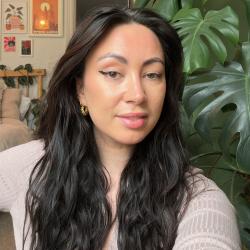Biography
I am a first-year PhD student, funded by the AHRC, in collaboration with the National Crime Agency, and facilitated by the Open-Oxford-Cambridge Doctoral Training Partnership. My project aims to look at voice distinctiveness and voice quality. I'm supervised by Dr Kirsty McDougall, for whom I also work as a Research Assistant on a project looking at speech disfluencies in Aboriginal Australian English.
For the last four years, I have also been the Cambridge-based Research Assistant on the IVIP (Improving Voice Identification Procedures) project, assisting with planning, designing, and running experiments, preparing and delivering conference talks and posters, and writing up articles for publication in academic journals. I completed my undergraduate degree in English Language and Literature at the University of Edinburgh, and then went on to the renowned MSc in Forensic Speech Science at the University of York, where my final project looked at vowel trajectories and /r/ tapping in young British Pakistani men in Manchester and London. Whist in York I also worked as a Research Assistant on a WikiDialects project, and 'Geordie? Mackem? Smoggie? Dialect differences in the North East of England.'
Research
I’m interested in the relationship between different measures of voice distinctiveness, specifically in the context of forensic phonetics. Previously, in my work on the IVIP project, we found that listeners perceive voices as sounding more different from one another when they have a more ‘common’ pitch value than when they have an unusual pitch value. My PhD extends this investigation to measures of voice quality to understand whether listeners perceive certain voice quality settings as making a voice sound more or less distinctive. I will investigate how this relates to extracted acoustic measures of distinctiveness. My project will also examine the effect of perceived voice distinctiveness on how well listeners can remember both the voice and the content of what was said.
Publications
Pautz, N., McDougall, K., Mueller-Johnson, K., Nolan, F., Paver, A., & Smith, H. M. J. (2024). Time to reflect on voice parades: The influence of reflection and retention interval duration on earwitness performance. Applied Cognitive Psychology, 38(1), e4162. https://doi.org/10.1002/acp.4162
McDougall, K., Paver, A., & Nolan, F. (2023). Voice distinctiveness: An investigation of the role of speakers’ position in a population with respect to f0. Proceedings of the 20th International Congress of Phonetic Sciences, 3790–3794.
Pautz, N., McDougall, K., Mueller-Johnson, K., Nolan, F., Paver, A., & Smith, H. M. J. (2023). Identifying unfamiliar voices: Examining the system variables of sample duration and parade size. Quarterly Journal of Experimental Psychology, 76(12), 2804–2822. https://doi.org/10.1177/17470218231155738
Jat, S. C., McDougall, K., & Paver, A. (2023). Pausing and the ‘Othello Error’: Patterns of pausing in truthful and deceptive speech in the DyViS database. International Journal of Speech, Language and the Law, 30(1), 87–118. https://doi.org/10.1558/ijsll.24331
Other Professional Activities
Research Assistant on ESRC-funded project 'Improving Voice Identification Procedures’ 2020-present
Research Assistant on CHRG-funded project ‘Sociophonetic Variation in Aboriginal and Mainstream Australian Englishes: A Study of Disfluency Features’ 2023-present
Professional membership: International Association for Forensic Phonetics and Acoustics
British Association of Academic Phoneticians
International Association of Forensic and Legal Linguistics

